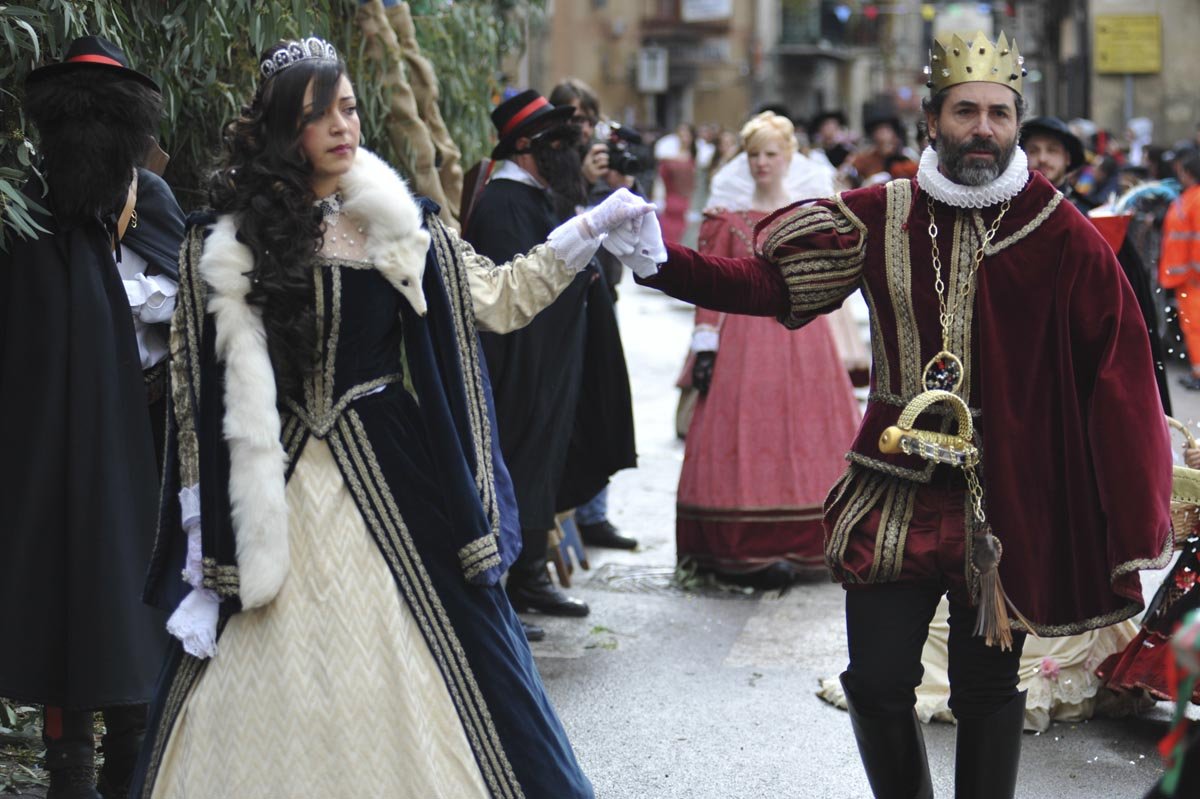{ Chapter Twelve }
The Alemanni (which means “all men”) were a confederation of Germanic-speaking people that settled on the Upper Rhine River in present day Germany.
A squadron of Alemanni cavalry
The pantomime of the struggle of the Mastro di Campo to conquer the hand of the queen that was usurped by the king. It was represented in the popular districts of the Kalsa and the Albergheria during the celebrations for Carnevale. It originates from the valiant courtship that Bernardo Cabrera, Count of Modica, who at the beginning of the fifteenth century attempted toward the White Queen of Navarra, the young widow of Martin the Younger. It has become a popular festival in the comune of Mezzojuso that has been held for over two centuries. AC, 627.
For an excellent description, with photos, see: http://www.mezzojusoecotour.it/Pages/mastro.php.
the Mastro di Campo
Sugar coated almonds.
Throwing handfuls of confetti
San Pietro
Ancient name of the comune of San Pietro Patti, about 50 miles west of Messina. AC, 623.
Barcellona
Barcellona Pozzo di Gotta, town about 25 miles west of Messina. AC 624.
Natoli: domino celeste. A robe-like costume, worn by both men and women, concealing the identity of the wearer, producing an air of adventure, conspiracy, intrigue, and mystery, thus enabling them to move freely and converse with whomever they pleased.



